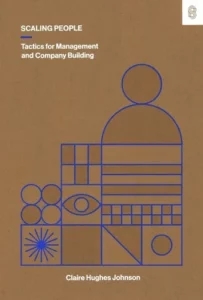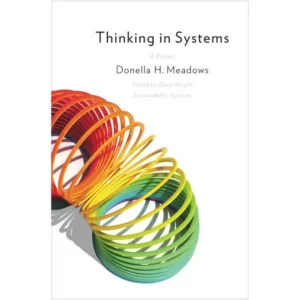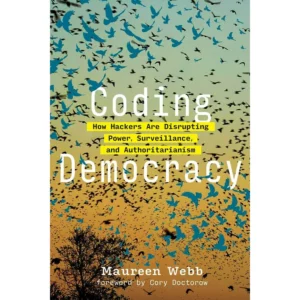In the spirit of sharing what we’re reading — a regular tradition around here; see our just-published winter 2023 list of books (+games, movies, and more), as crowdsourced from team a16z crypto — below are some of the books we recently curated for the giveaway library at our second annual a16z crypto Founder Summit. This year we also included a few personal notes on why some of these “staff picks”…
As always: The books in this list are not just for crypto founders! The list spans biographies to company building and organizational history to creative inspiration and science fiction, with something for everyone in crypto and beyond.
…company building, how-to
The Art of Doing Science of Engineering: Learning to Learn by Richard Hamming (Stripe Press)
Designing Data-Intensive Applications: The Big Ideas Behind Reliable, Scalable, and Maintainable Systems by Martin Kleppmann
“An extremely digestible, yet very comprehensive examination of the big ideas in distributed systems, this is my #1 recommended book for young systems engineers. Kleppmann starts by breaking down exactly why distributed systems are challenging to build, maintain, and scale — before going through data models, system design, and the future of data systems. While the book does not touch explicitly on blockchains, it is a great foundation for any engineer looking to better understand the distributed systems necessary to build with blockchains.” — Sam Broner, engineering
Scaling People: Tactics for Management and Company Building by Claire Hughes Johnson (Stripe Press)
A Theory of Fun for Game Design by Raph Koster
Thinking in Systems: A Primer by Donella Meadows
Think Faster, Talk Smarter: How to Speak Successfully When You’re Put on the Spot by Matt Abrahams
Editor’s note: See also this related podcast where we discuss the themes of the book, and how they apply to technical settings including the crypto industry.
…builder biographies, organizations, and process of innovation
Chip War: The Fight for the World’s Most Critical Technology by Chris Miller
“A concise and thoughtful history of the manufacturing of semiconductors, from the 1947 to 2022. It’s the kind of book that, when it ends, leaves you wondering what’s next — and situates all of us (as founders, engineers, technologists, writers, and participants) firmly in the history of computing.” — Eddy Lazzarin, CTO
The Making of Atomic Bomb by Richard Rhodes
“This is my favorite non-fiction book of all time, and has new life with the release of the Oppenheimer film. But the book is so much more: Beginning in the late-19th century, Rhodes covers the advent of nuclear fission all the way through the making and dropping of the bombs and their aftermath. It’s compulsively readable; Rhodes is also a great science explainer. As for founders: it’s all about discovery; building; and world-changing projects.” — Tim Sullivan, editorial partner
Skunk Works: A Personal Memoir of My Years at Lockheed by Ben Rich and Leo Janos
How to Build a Car: The Autobiography of the World’s Greatest Formula 1 Designer by Adrian Newey
“This is the autobiography of Adrian Newey, a legendary Formula 1 Aerodynamicist. It provides incredible insight into the problem solving mind of a great engineer. Newey describes how he and his team would circumvent the strict Formula 1 restrictions and find extremely clever loopholes to eek out the smallest bit of gains over their competition. It’s truely insightful story of innovation and grit in a very cutthroat sport. The loopholes, performance improvements, and designs Newey has come up with have directly shaped what F1 cars look like today and have influnced everything from simple road going vehicles to high performance sports cars and EVs. A total treat if you’re into F1 at all, but still interesting.” — Sagar Dhawan, data scientist
Shoe Dog: A Memoir from the Creator of Nike by Phil Knight
Can’t Hurt Me: Master Your Mind and Defy the Odds by David Goggins
“This is the incredible autobiographical story of David Goggins, one of only 36 African American Navy Seals and incredible endurance athlete. He was born with hole in his heart, with severe dyslexia. His father was an abusive drug dealer. Despite these challenges, Goggins had an amazing career both in the Armed Forces and as an extreme endurance athlete. His message is simple yet powerful: If I can do the things I’ve done with the deck seemingly stacked against me, imagine what you are capable of. This is a book I tell every founder/CEO I work with to read.” –Jason Rosenthal, operating partner
Endurance: Shackleton’s Incredible Voyage by Alfred Lansing
…tech trends, history, open source/ web3 themes
The Cathedral & the Bazaar: Musings On Linux And Open Source By An Accidental Revolutionary by Eric Raymond
The Evolution of Cooperation by Robert Axelrod
Seeing Like a State: How Certain Schemes to Improve the Human Condition Have Failed by James Scott
The Sovereign Individual: Mastering the Transition to the Information Age by James Dale Davidson & Wiliam Rees-Mogg
The Inevitable: Understanding the 12 Technological Forces That Will Shape Our Future by Kevin Kelly
…sci-fi and other fiction
The Invincible by Stanislaw Lem
“Written in 1964, it is one of the first sci-fi novels to suggest an idea of ‘smartdust’, which consists of nano machines, all exact replicas of each other, that are harmless by themselves — but when they form a cloud, they become super-intelligent. This smartdust idea strongly resembles a blockchain! The novel itself is very gripping high-quality sci-fiction as well.” — Valeria Nikolaenko, research partner
Cryptonomicon by Neal Stephenson
Tomorrow, and Tomorrow, and Tomorrow by Gabrielle Zevin
…more creative inspiration
The Creative Act: A Way of Being by Rick Ruben
The Nolan Variations: The Movies, Mysteries, and Marvels of Christopher Nolan by Tom Shone
…selected repeats from last year’s list
The Company: A Short History of a Revolutionary Idea by John Micklethwait & Adrian Woolrdige
Empires of Light: Edison, Tesla, Westinghouse, and the Race to Electrify the World by Jill Jonnes
Designing An Internet by David Clark
The Death and Life of Great American Cities by Jane Jacobs
Coding Democracy: How Hackers Are Disrupting Power, Surveillance, and Authoritarianism by Maureen Webb
curated by Sonal Chokshi and Brittney Burrows






